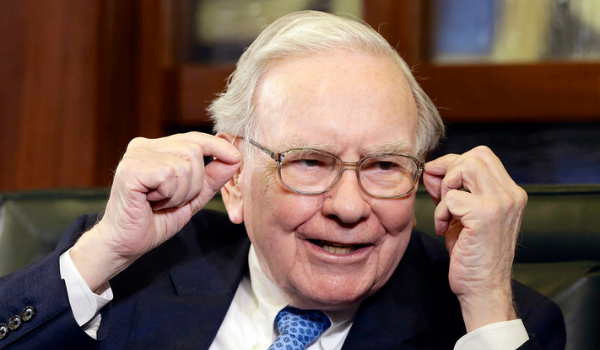The rise of passive investing has taken wealth management by storm.
The numbers speak for themselves. Some $4.6 trillion was held in ETF assets globally at the end of 2018, up from less than $100 billion at the turn of the century. Passive funds made up 45% of AUM in equity funds and 26% for bond funds.
But is passive really better than active? What do the numbers really tell us?
A famous bet
Back in 2007, Warren Buffett – the world’s most successful investor – made a bet with a friend.
This was no ordinary wager. Buffett bet Protégé Partners, an asset manager, $1 million that a passively managed index fund would outperform a collection of hedge funds over the course of the next decade. So convinced was he of the superiority of passive management over active management, he staked his reputation on it.
Buffett won the bet. And the manner of his victory was emphatic.
Over 10 years, the S&P 500 index fund returned 7.1%, much more than the average of 2.2% returned by the basket of funds selected by Protégé Partners. Buffett attributed this stunning disparity in returns to the fees that active managers rake in from their investors. He observed:
“Performance comes, performance goes. Fees never falter.”
By putting his money where his mouth is, the Sage of Omaha brought his argument to life and demonstrated how the high fees charged by active managers can quickly erode returns. And rather than pocket his winnings, he generously donated them to Girls Incorporated of Omaha, a charity that provides after-school care as well as summer programs for girls ages 5 to 18.
The data doesn’t lie
That’s just one famous example of how passive outperforms active management. But further evidence is emerging all the time.
Indeed, S&P Dow Jones Indices recently released its annual report on how actively managed funds performed against their benchmarks. The conclusion? Active managers show dismal performance against their passive benchmarks.
This has been going on for some time. In fact, 2018 was the 9th consecutive year in which the majority (64.5%) of large-cap funds lagged the S&P 500. After 10 years, 85% of large cap funds underperformed the S&P 500, and after 15 years, nearly 92% are trailing the index. This study has been carried out for 16 years, and although a fund manager may outperform the index for a year or two, that outperformance doesn’t last.
The danger of fees
The S&P study and Buffett’s bet brings the “passive versus active” debate into sharp focus, strengthening the argument for index investing.
The rise of robo advisors and their exploding popularity is further evidence that savers and investors are fed up of being charged sky-high fees for mediocre returns. The high costs of active management (which include management, performance, brokerage and custodial fees) are simply out of step with the low costs of passive investing.
At Sarwa, we feel the same way. That’s why we keep our fees as low as possible, especially compared to traditional wealth advisors that can charge over 3-5% and often bury their fees in the small print. In fact, we offer the lowest fees in the region and we’re transparent with our fee structure, so you know what your paying.
By investing with us, you maximise your chances of building wealth over the long term, without the corrosive effect of high fees.
Separator
Ready to invest in your future?
